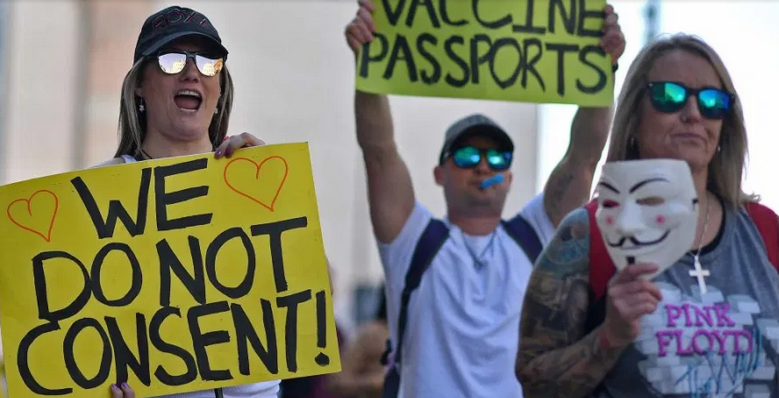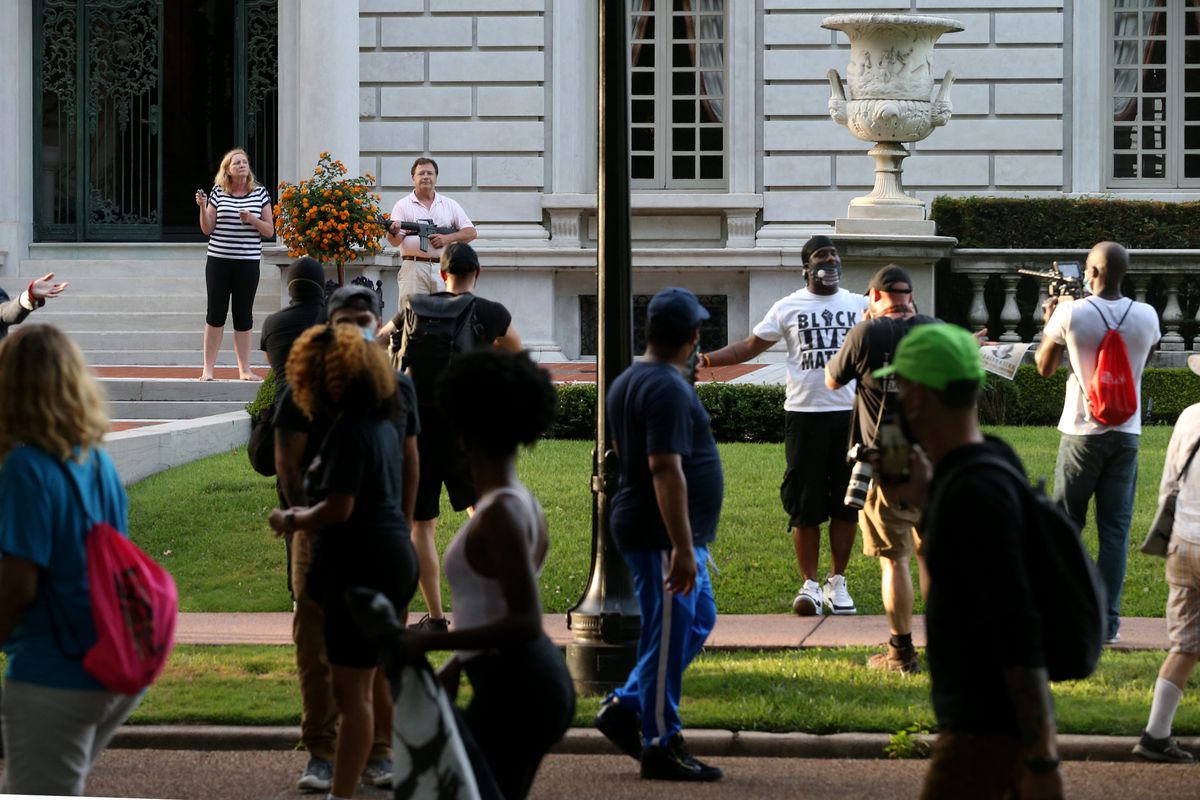Police in London said Saturday they arrested five people, and eight officers were injured, after disorder at large-scale protests against England’s remaining coronavirus restrictions, the mandatory use of masks and possible introduction of so-called vaccine passports.
Demonstrators had gathered early afternoon and marched along several major arteries, including the main shopping district Oxford Street, with videos and photos showing thousands in attendance.
Hundreds then rallied in Hyde Park later following the march, an AFP reporter said, where “small pockets of disorder” broke out, according to London’s Metropolitan Police Service.
“Eight officers were injured as they worked to disperse crowds in Hyde Park this evening,” it said, adding that missiles including bottles were thrown.
“Two officers were taken to hospital. Thankfully, they are not believed to be seriously injured.
“Five people were arrested for offences including assault on police and are now in custody.”
Britain began to gradually lift Covid-19 restrictions in March after months of restrictions and a successful mass vaccination campaign.
Pubs were allowed to serve customers outdoors this month and non-essential shops reopened, but some curbs remain.
Organisers used various websites and online platform pages to encourage turnout to protest the pandemic measures, despite rules which limit outdoor gatherings to 30 people among them.
An exception for protests carries requirements including a Covid-19 risk assessment being conducted.
“Anyone coming into London for a protest must make sure their gathering is lawful, with a risk assessment carried out by the organiser,” the Met had said warned on Twitter.
Anti-lockdown protests by hundreds or even thousands have occurred sporadically during the pandemic, often resulting in a small number of arrests.
England’s latest Covid-19 lockdown measures have been in place since early January, after the UK saw a surge in cases.
Months of restrictions alongside the successful vaccine rollout — with more than 45 million doses administered — has seen the situation improve.
Pandemic indicators such as infections, hospitalisations and deaths are at levels not seen since last September.
Another major easing is due in mid-May, when some indoor socialising can resume, before nearly all restrictions are ended in late June.
The government is looking at introducing a passport scheme for a variety of settings, including leisure and hospitality as well as foreign travel, to verify if people have been vaccinated or have immunity from the virus.
Britain has been among the hardest hit in Europe by Covid-19, recording more than 127,000 deaths within 28 days of a positive test.
AFRICANEWS




